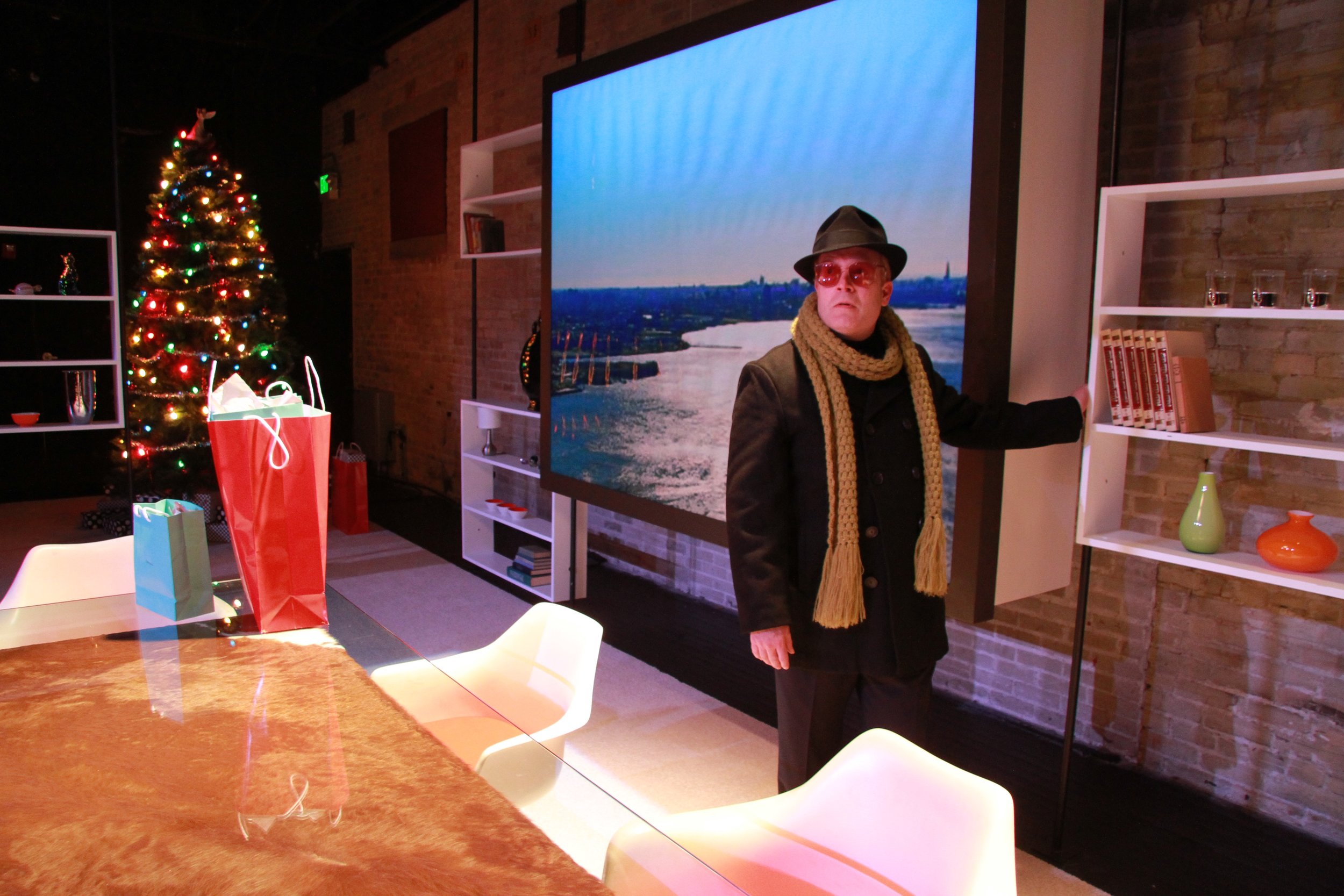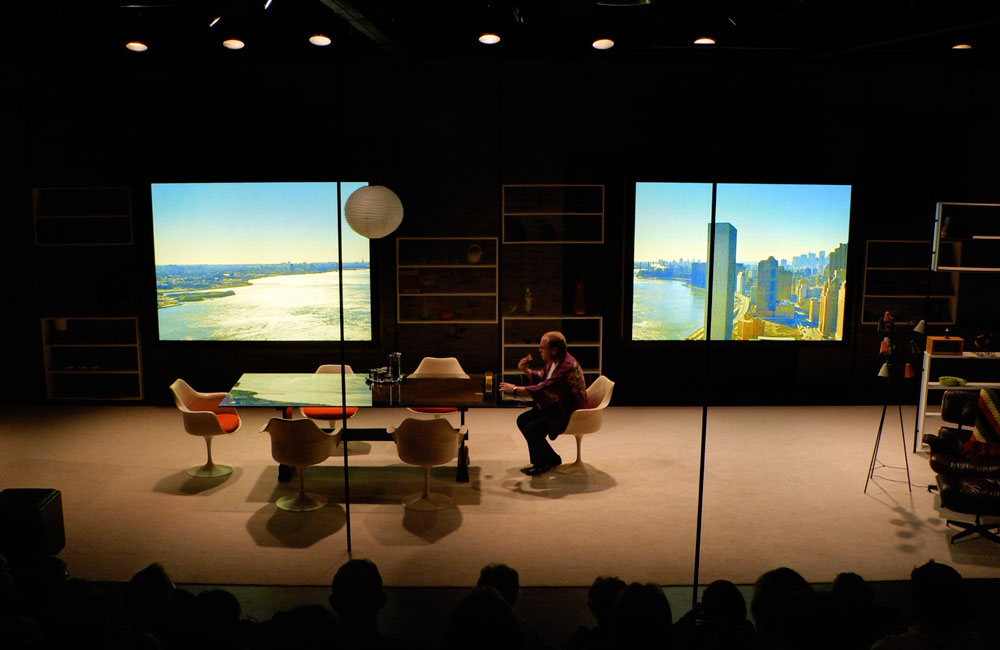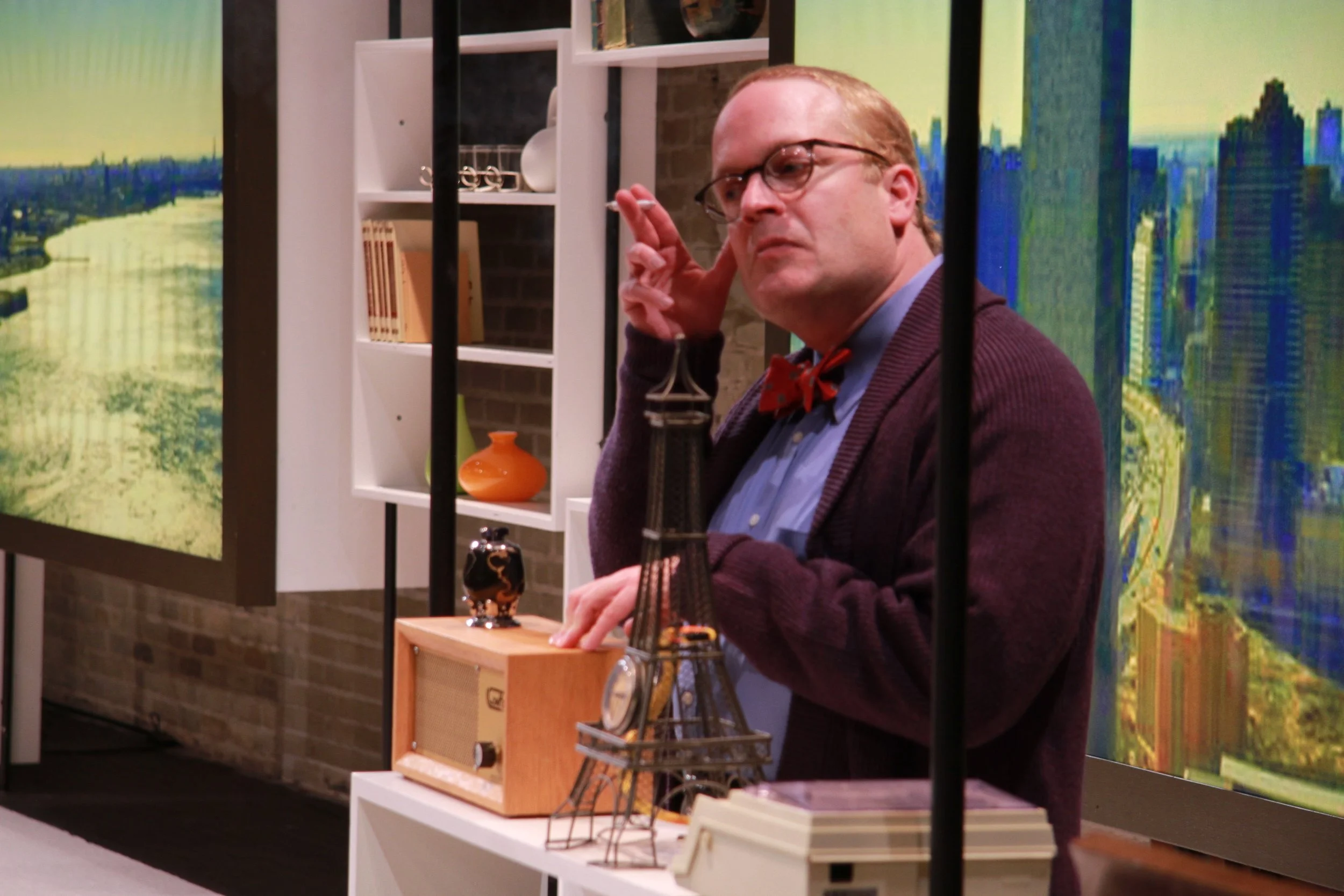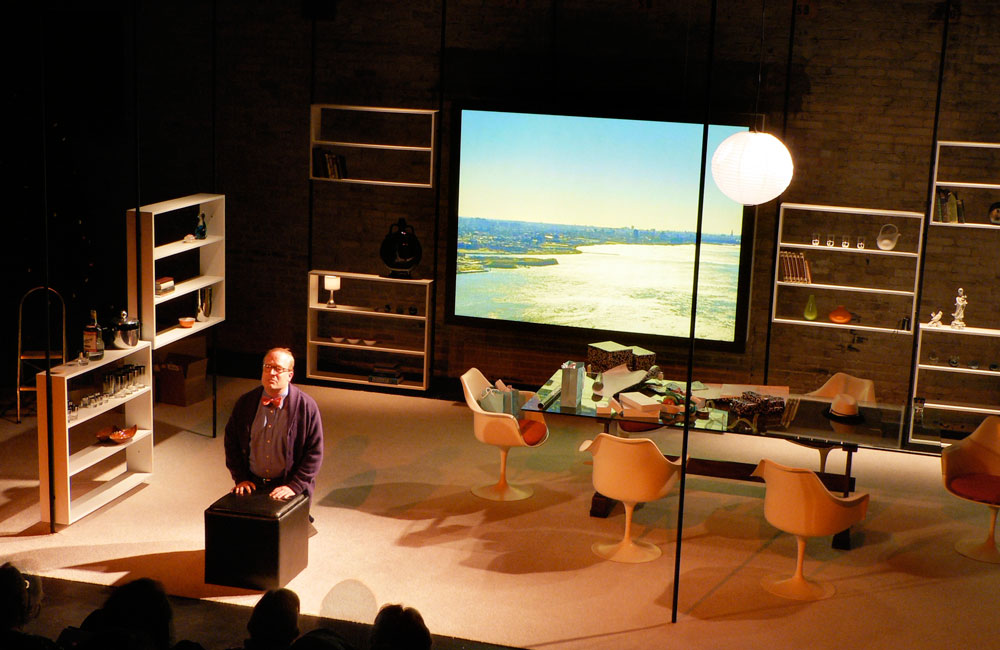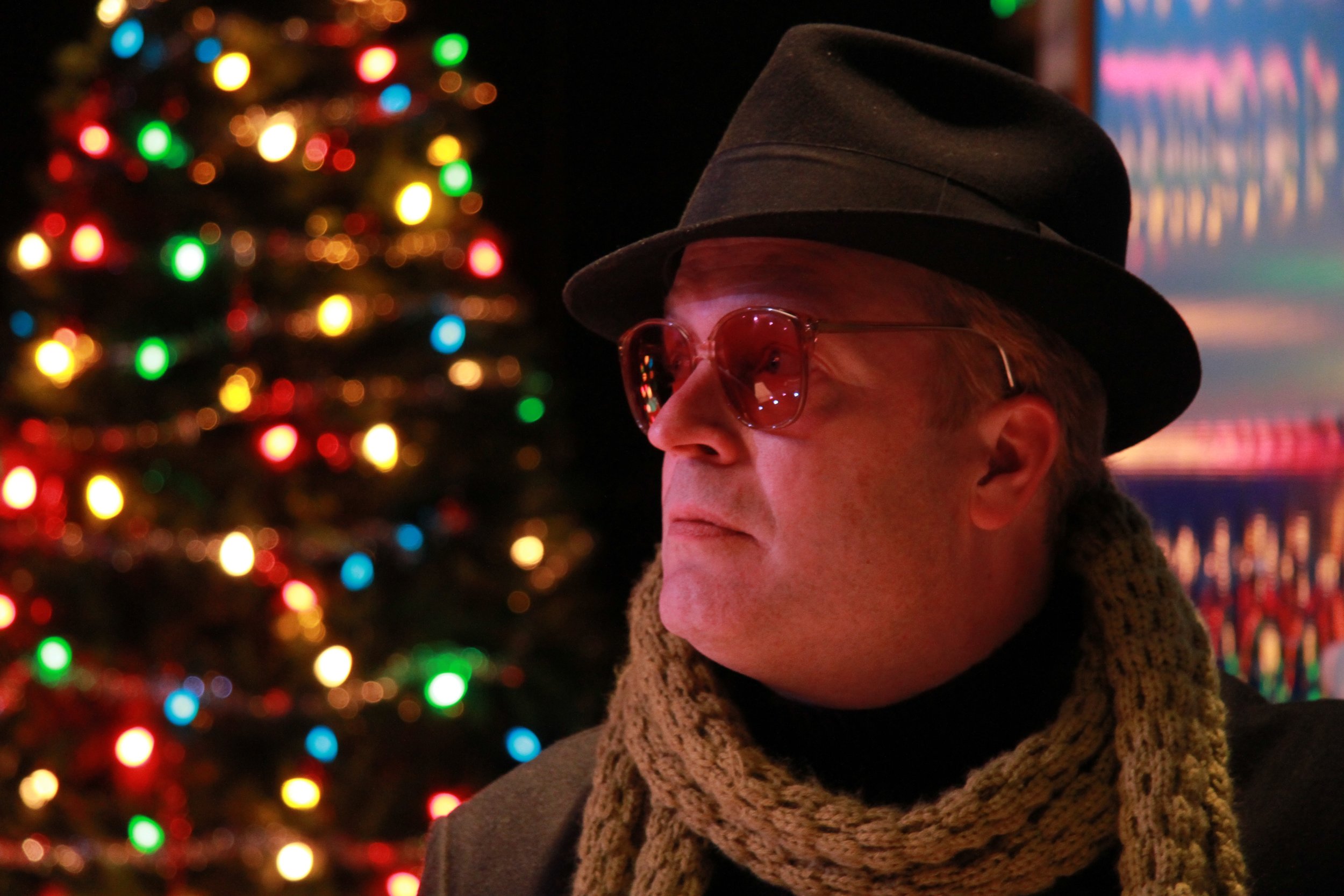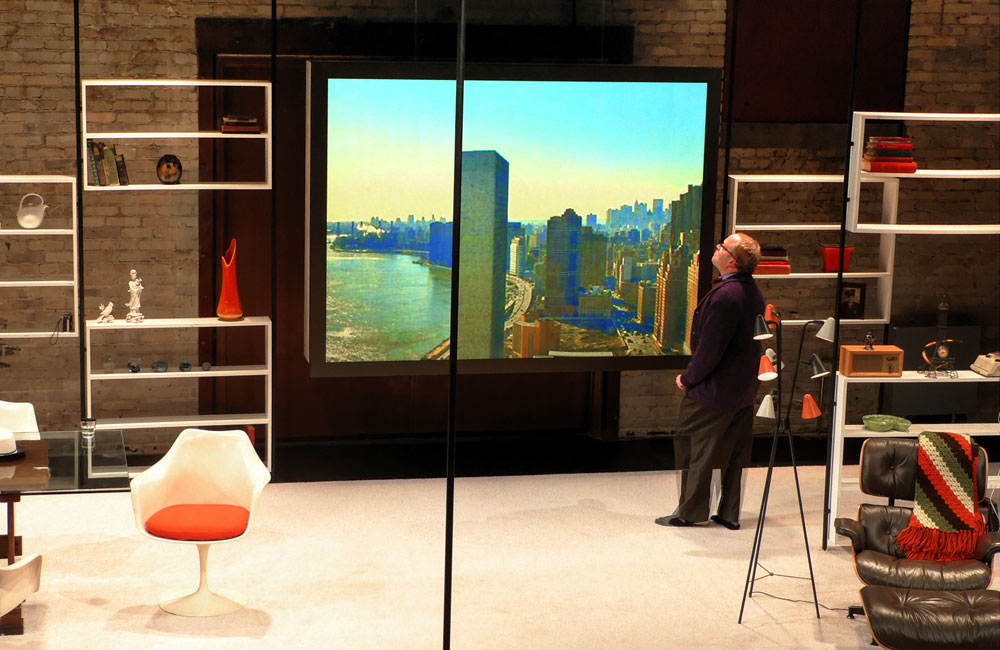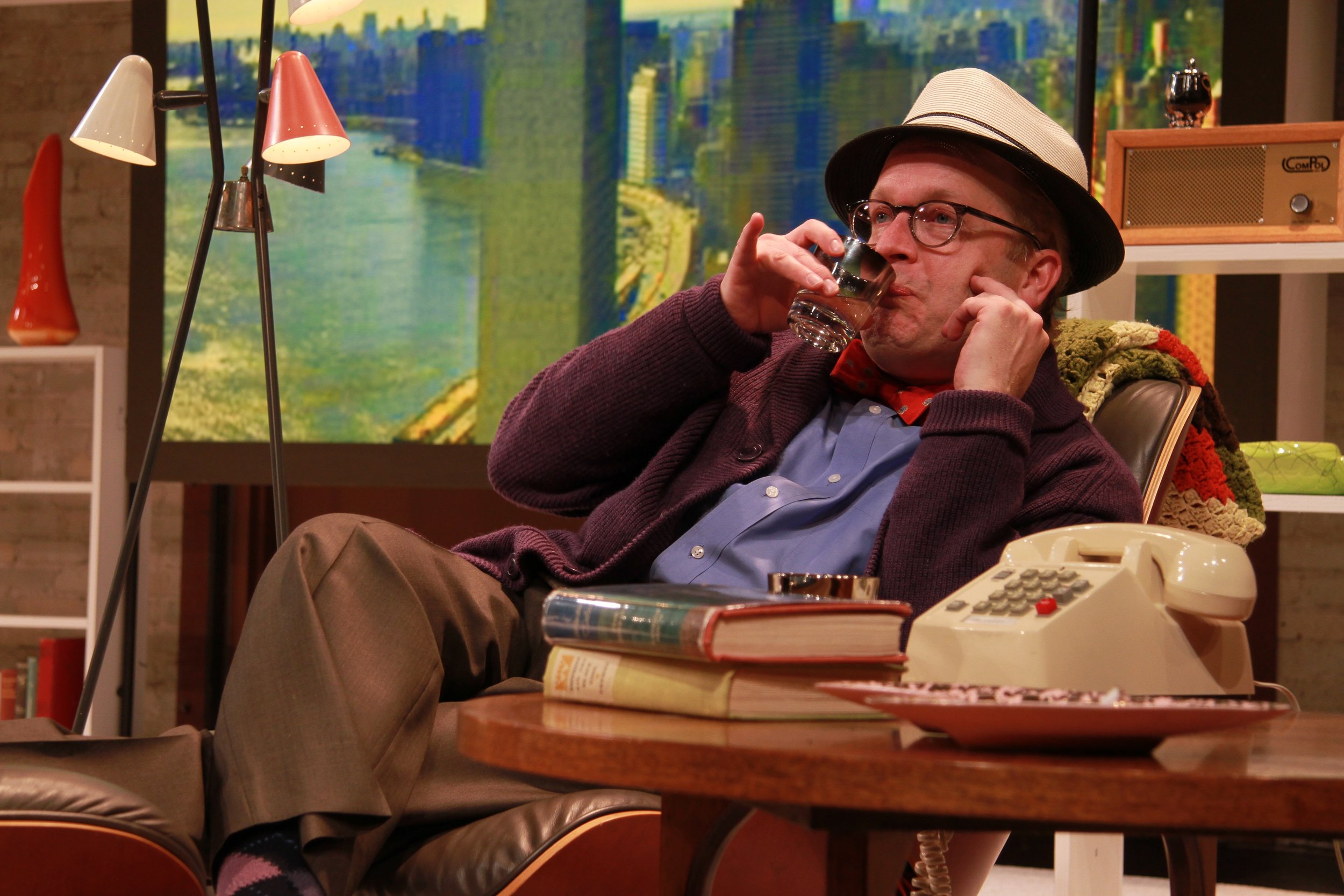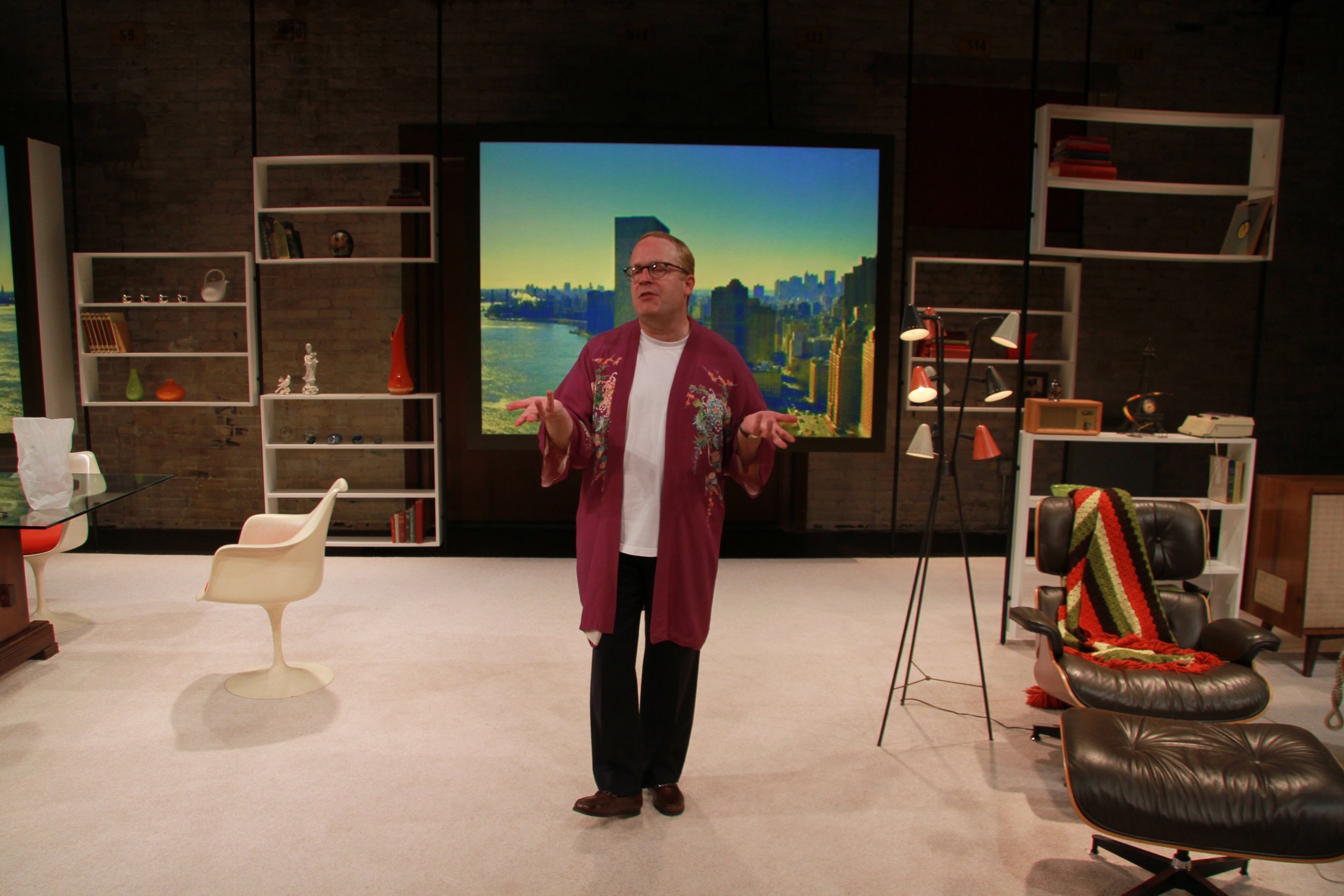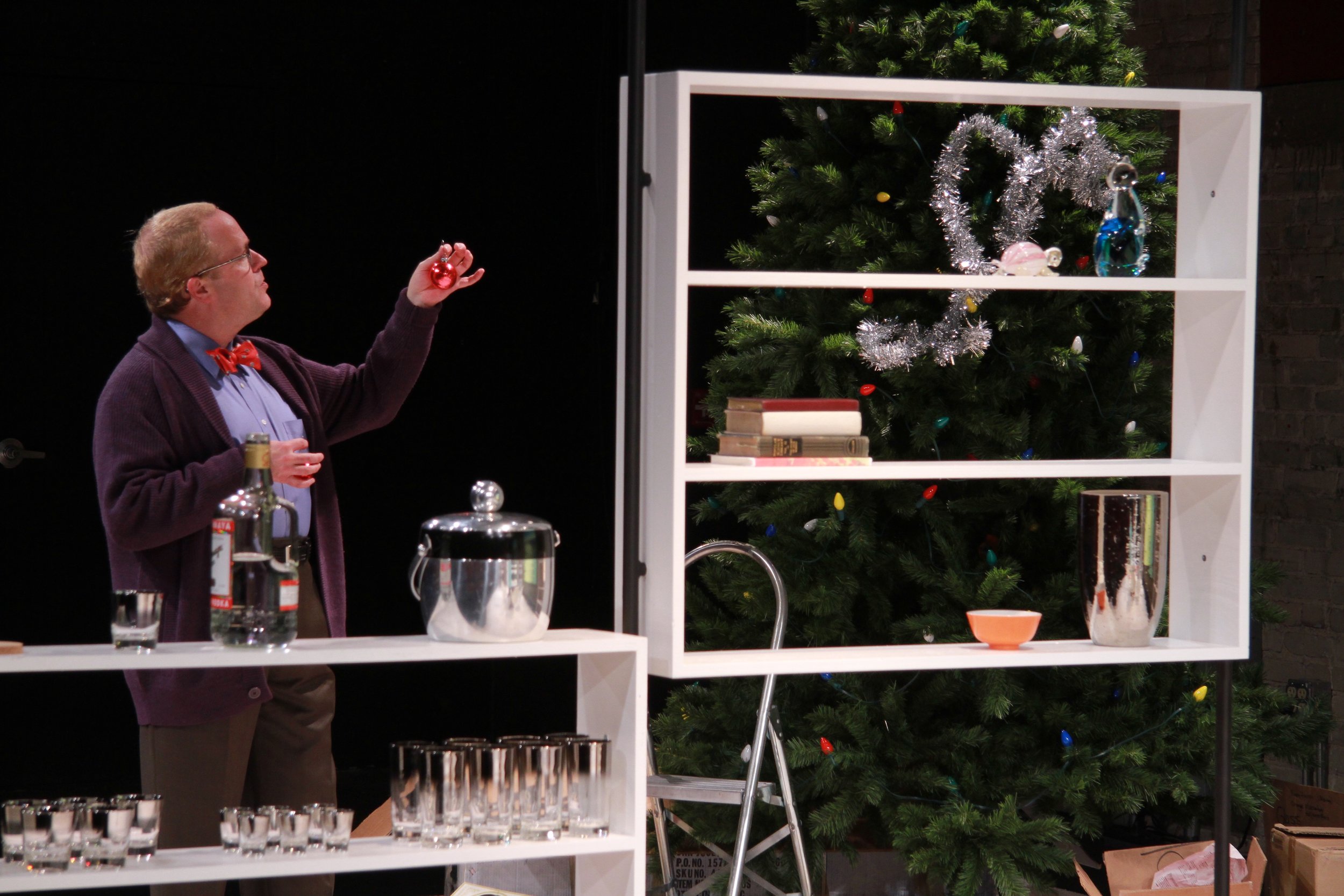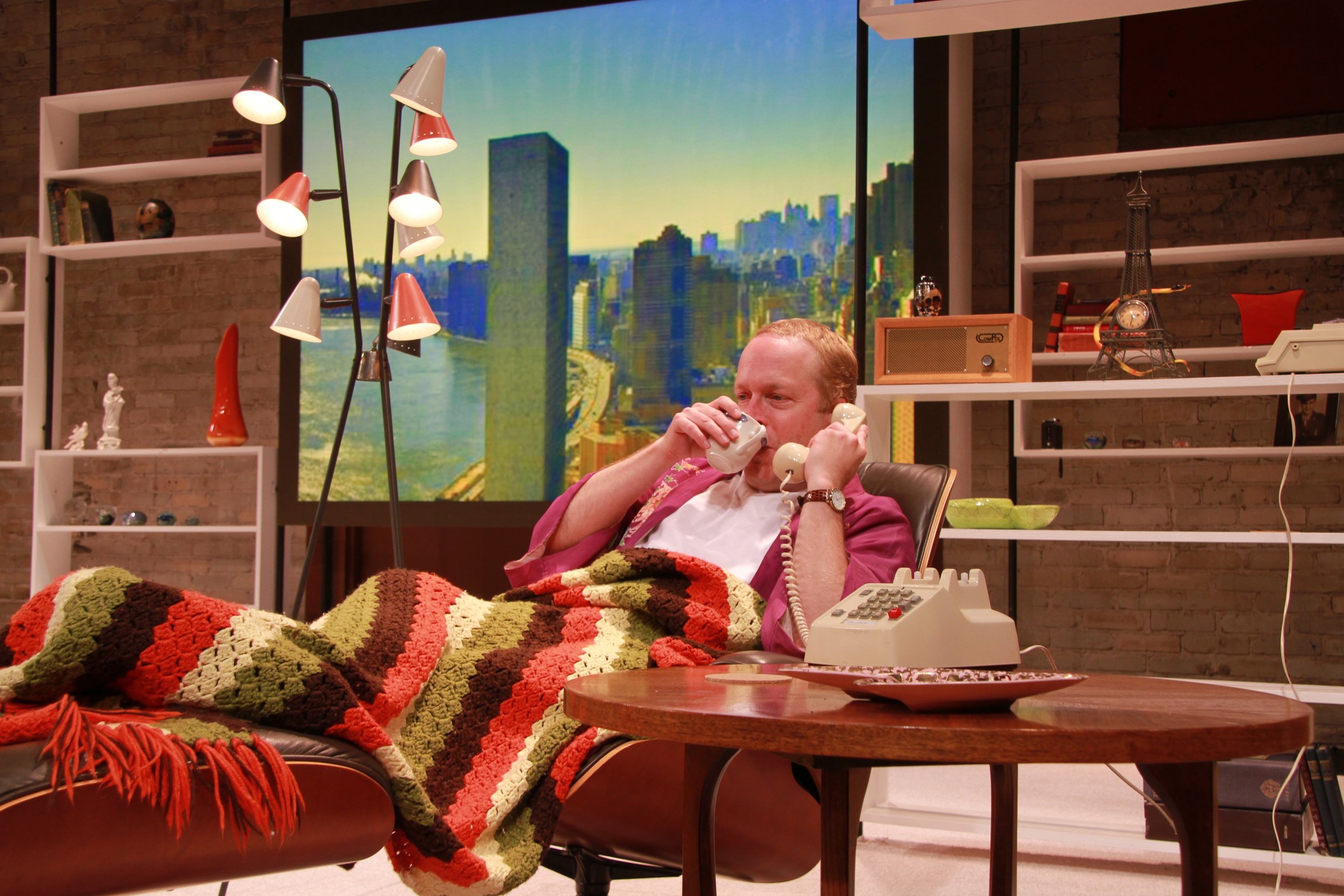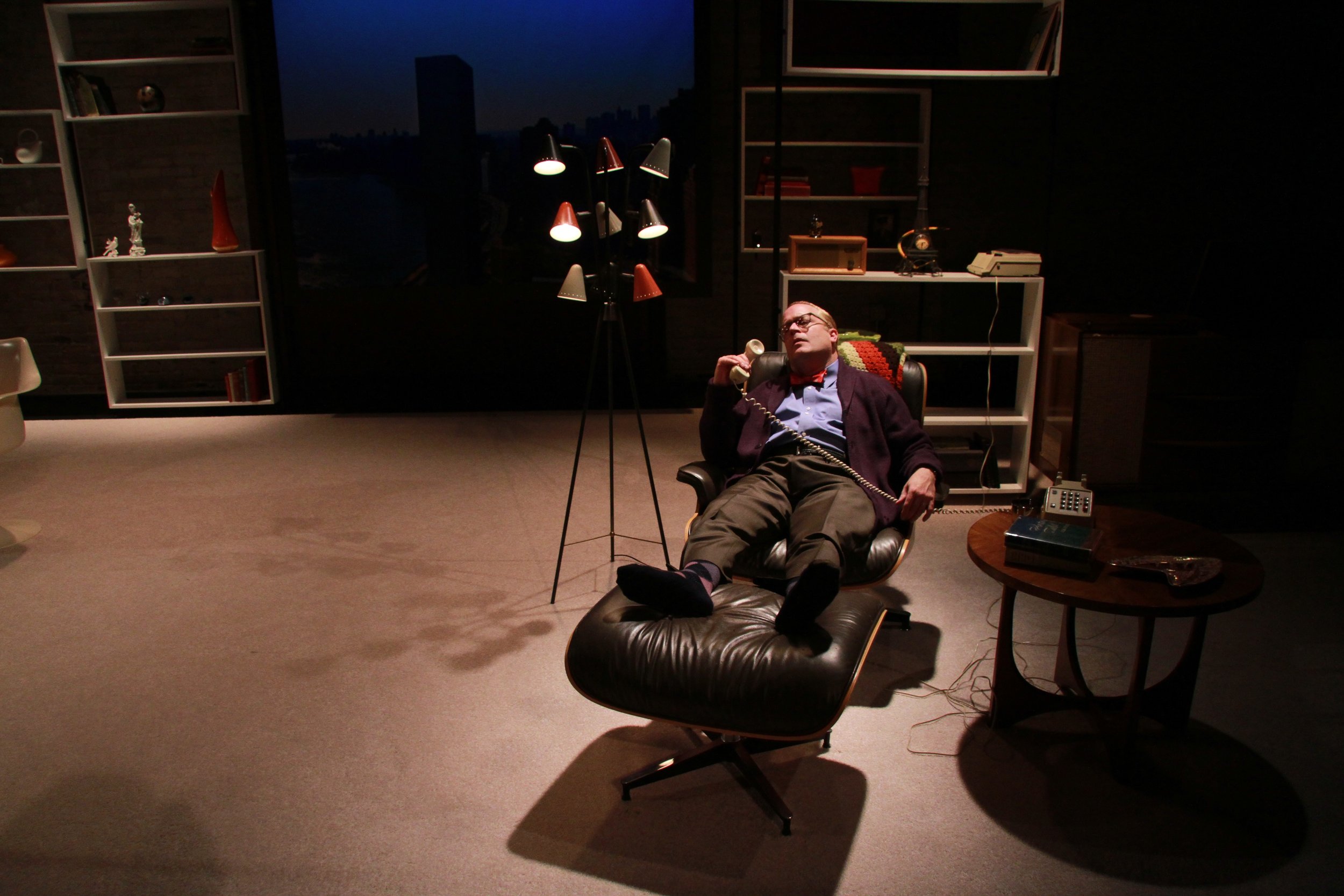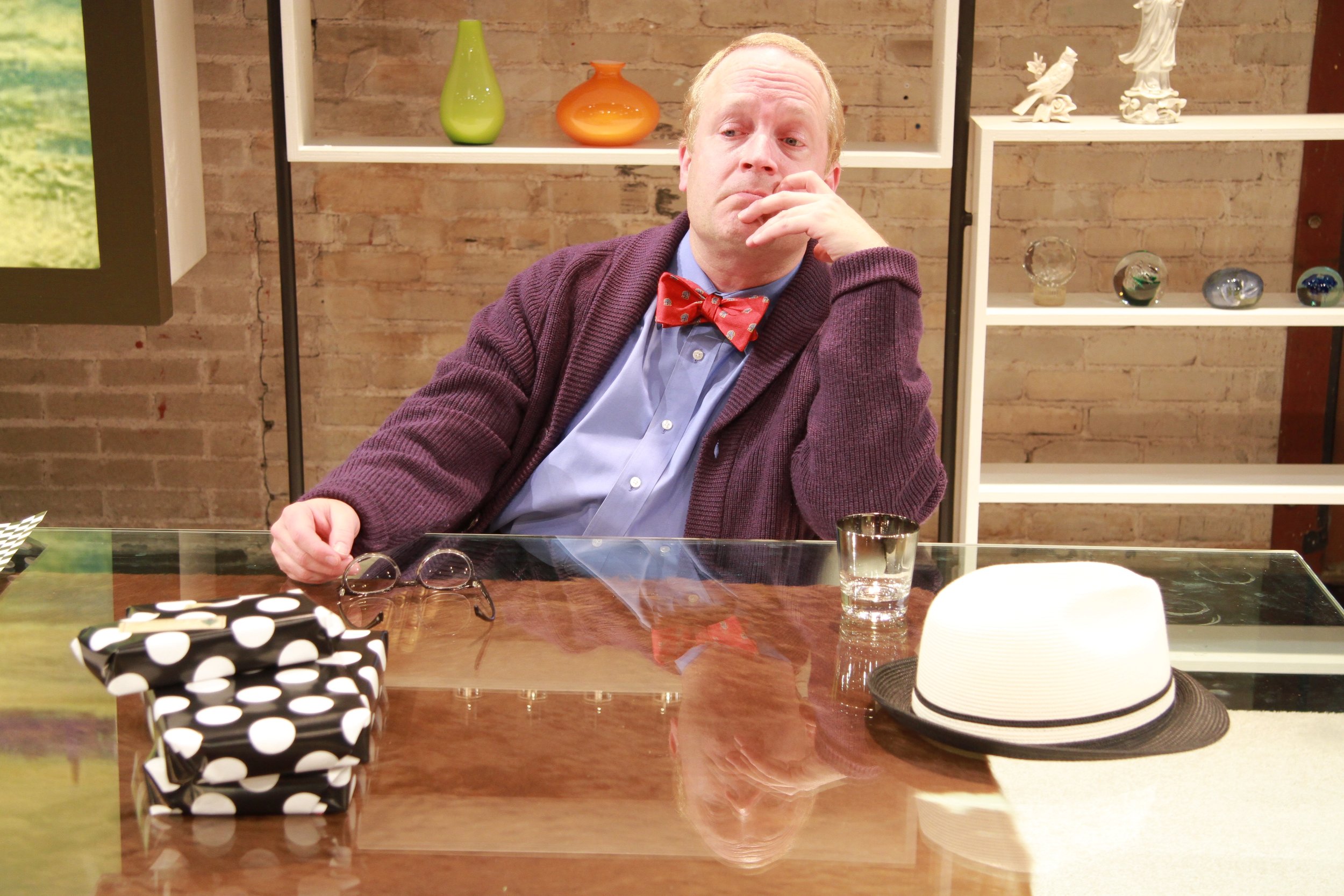TRU
Set Design: Rick Martin | Lighting Design: Rick Martin
Costume Design: Star Moxley | Sound Design: Peter John Still
Scroll down to read Drew's director's note for Tru at Boise Contemporary Theater.
Tru by Jay Presson Allen | Director's Note
In 1966, two weeks before In Cold Blood was published, Truman Capote signed a contract with Random House for a new book called Answered Prayers. It was to be his masterpiece, a work he’d been conceiving for over twenty years. In Cold Blood had taken six agonizing years to finish, but in it he had perfected – some would say created – a new form of journalistic fiction that treated a real event with fictional techniques: the non-fiction novel. Building upon this revolutionary synthesis, Capote envisioned Answered Prayers, which was based entirely on real people and real situations, as a scathingly funny, brutally honest portrait of twentieth century high society and a distillation of everything he had learned about life and art. He told People magazine, “I’m constructing it in four parts, and actually, it’s like constructing a gun. There’s the handle, the trigger, the barrel and finally, the bullet. And when that bullet is fired from the gun, it’s going to come out with a speed and power like you’ve never seen—wham!”
Born Truman Streckfus Persons to ill-matched parents who went their own separate ways after abandoning him to the care of distant relatives, Truman was summoned at age 8 to join his mother and her second husband, Joe Capote, in New York City. Haunted by his lonely childhood, Truman was a voraciously social creature and life in New York introduced him to an ever-widening circle of glamorous acquaintances. As his literary reputation grew, so too did his renown for attracting the attentions of writers, artists, celebrities, power brokers and royalty. Truman’s closest companions were the wives of powerful men—beautiful, stylish women he called his swans. Among the many swans in Truman’s bevy, the most cherished were: Barbara “Babe” Paley, married to CBS founder, Bill Paley; Lady Nancy Gross Hawks Hayward Keith (aka “Slim”), socialite and fashion icon; and C.Z. Guest (born Lucy Douglas Cochrane), who once appeared on the cover of Time Magazine as the embodiment of American high society.
In the summer of 1975, against the advisement of his editor, Capote allowed Esquire magazine to publish select chapters from an unfinished Answered Prayers. The publication of the first, “Mojave,” in June generated wide-ranging acclaim and emboldened Capote to proceed with another. “La Côte Basque, 1965” hit the newsstands in November. Sadly, any expectations of building on the previous chapter’s success were short-lived. “La Côte Basque” is set in a chic Manhattan bistro where society’s upper crust meet to dish the dirt about one another. Recognizing themselves in the champagne-drinking, venom-tongued subjects of the story, Truman’s swans were hurt, offended and outraged; they turned their backs on him as quickly as they had once welcomed him into their fold. He returned at Christmas from Hollywood, where he had been filming Neil Simon’s Murder By Death, to find his fawning friends grown silent and cold. Like the boy who’d been abandoned by his parents, Truman was alone again.
Just why Truman Capote would take artistic aim against the people who had become his closest friends fueled much speculation at the time and remains a mystery today. The fact that for many years he’d spoken openly of his intentions for Answered Prayers strongly supports Truman’s surprise at the indignation the excerpts of the work provoked. He clung fast to his stance that as an artist he owed no apology to anyone and that the finished book, like Proust’s Remembrance of Things Past, would silence all criticism. Ever the survivor, Truman mustered a brave public face. He cultivated new friends like Jan Cushing, who ushered him into the world of Andy Warhol and Studio 54. He made the rounds of TV talk shows alternately promising the imminent publication of the scandalous masterpiece or bemoaning a new obstacle in its completion. When Truman Capote died in 1984, after years of battling alcohol and drug abuse, all that was discovered in his papers were the previously published chapters of Answered Prayers and a key to a safe-deposit box that has never be found.
-Drew Barr
